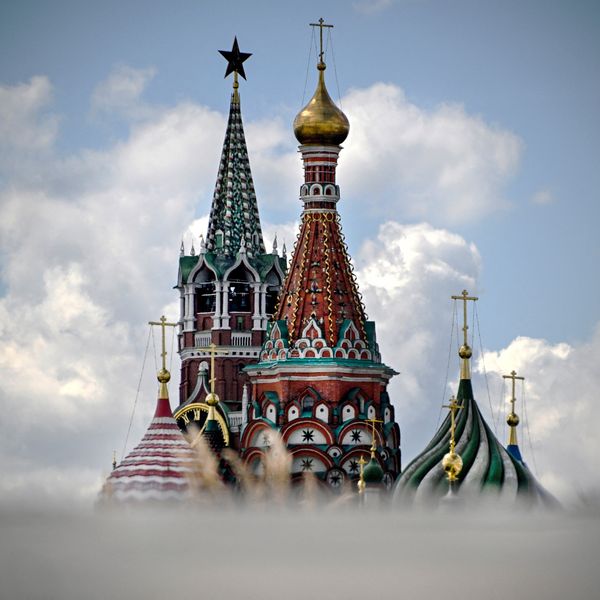There has been much said about how often President-elect Donald Trump takes his Presidential Daily Brief (PDB), the Intelligence Community’s (IC) assessment of key national security threats. The PDB is critical, and reports that the President-elect has upped the frequency to three times a week are encouraging. As someone who in his last assignment at CIA was granted access to the PDB, I believe that the President-elect will find it to his advantage over time to receive it the six days a week it is published. He will also find the IC ready to tailor the PDB to him as it has for every president.
However, I would like to move beyond the PDB and broadly review how the IC gives every president and his administration significant competitive advantage over any rival or threat.
The IC supports policymakers and warfighters from cabinet officials and generals to special operations platoon leaders and ambassadors in embassies large and small, with reports meeting customer needs for political, military, terrorism, proliferation and economic intelligence. This intelligence is derived from spies and satellites and everything in between. The IC produces large amounts of finished intelligence, including that covering current issues and longer-term analysis. The totality of this collection and analysis is the provision of significant competitive advantage to all levels of the government.
Does the IC have gaps in knowledge? Yes. Does the IC sometimes get it only partially right on an issue or (more rarely, but sometimes tragically) get it flat wrong? Yes, it does. The IC, however, is a learning institution and lessons are drawn and taught from failure as well as success. The Trump Administration will inherit an IC sharply focused on learning how to be better every day and meeting customer needs as part of its culture.
One key IC capability that the president commands is covert action. The strategic purpose of covert action is to give the president more options and tools. A review of CIA-acknowledged covert action programs authorized by the presidents since the CIA was created in 1947 shows that every president from the 1940s through the 1990s has used covert action to influence events abroad while trying to hide the hand of the U.S. government.
It seems likely that given Trump’s statements on his intent to increase the efforts against ISIS, al Qaeda, and other terrorist movements, both the IC collection and analysis support to the warfighter and the CIA’s ability to conduct duly authorized covert action will be of interest to the President-elect.
As a practitioner, student, and leader of covert action for more than 30 years, here are four observations for the new administration about covert action.
- Covert action is a tool to support policy, not a substitute for policy. The day after the covert action program ends, the U.S. may still have relations with the target government or group. Be prepared for that day with a sound policy to execute.
- While covert action is a CIA activity, a covert action program is only as good as the intelligence collection, counterintelligence, and analysis on which it is based; in that sense the whole IC collection and analysis effort sets conditions for successful covert action.
- Covert action, like war and diplomacy is a conflict of wills. We exert our will on the enemy, and it exerts its will on us. Remember: The enemy always gets a vote.
- President Dwight D. Eisenhower said that history does not long entrust the care of freedom to the weak or the timid. Once you decide on covert action, be bold and strong in its execution.
The IC was restructured in 2004 with the creation of the Director of National Intelligence (DNI). The Trump Administration will face multiple threats from terrorism, cyber activity, proliferation, the rise of near-peer competitors such as China and Russia and regional challengers such as North Korea and Iran. Conveying the president’s intelligence priorities to the IC and positioning the IC in terms of structure, capability, role and mission to accomplish the president’s priorities, meet the above challenges and adapt to the so far unforeseen new challenges that will arise in the future, will be a critical task for the new DNI and the president.
The IC has numerous partnerships with other countries’ intelligence services. These partnerships provide significant information, access, capability and leverage against our most difficult problems and worst threats. Continuing to work with these partners will provide significant strategic advantage to the Trump administration.
Lastly, the most important thing in the IC is the people who work there. My more than 30 years of service at the CIA leads me to believe that the women and men across the IC see their service as being part of something larger than themselves. They do it because they believe in our country, what it stands for, and the difference America makes in the world. January 20 will be the first day President Trump will actually lead the nation and command the IC. I wish him and my old IC teammates fair winds and following seas as they work together in defense of the nation.













